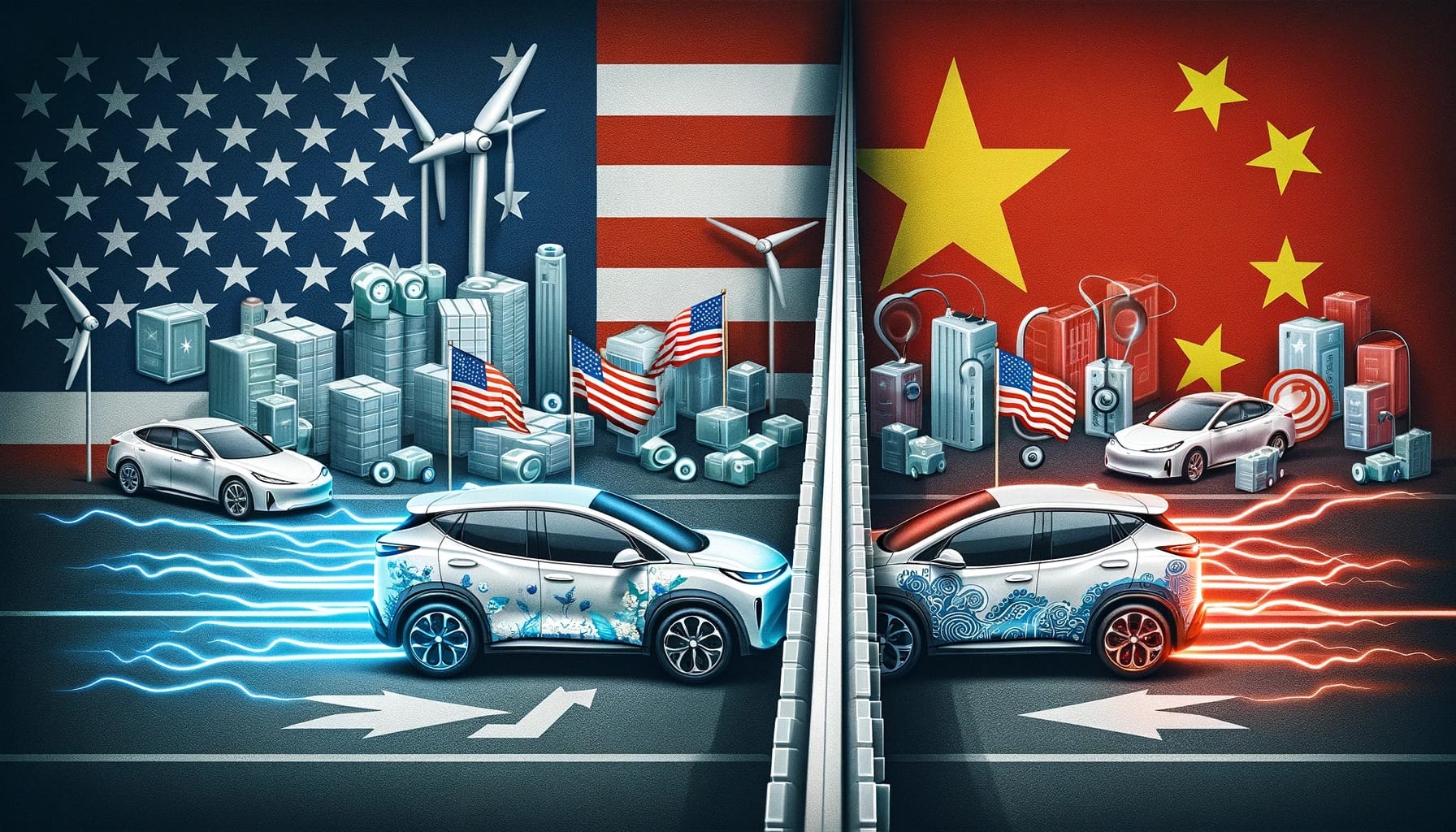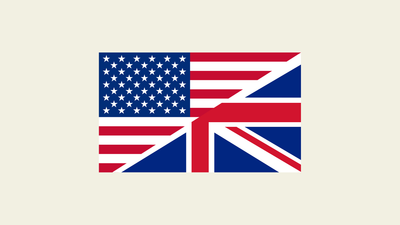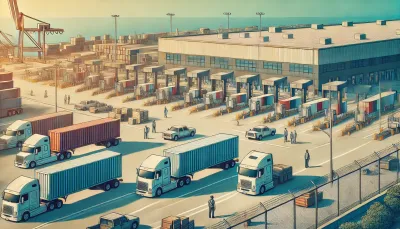US boosts tariffs on Chinese EVs

In Short: The Biden administration is planning to raise tariffs on Chinese electric vehicle (EV) imports to 100% (from 25%) to protect American industries ahead of the upcoming US election.
What's Going On?
The administration will soon announce a steep rise in tariffs on Chinese EVs and clean energy imports. This decision is intended to shield the American car industry from the potential influx of cheaper Chinese EVs, which could overwhelm domestic manufacturers. The new tariffs follow a review initiated by the Trump administration.
What Does This Mean?
The Biden administration's planned tariff increase to 100% on Chinese electric vehicle imports means that any EVs entering the U.S. from China will now face a significantly higher tax at the border. In practical terms, a tariff is a tax or duty imposed by a government on imported goods, aimed at making foreign products more expensive to encourage consumers to buy domestic alternatives. The drastic increase in tariffs reflects growing concerns that cheaper Chinese EVs could flood the U.S. market, undermining American automakers. This protectionist move is intended to shield American jobs and boost the domestic EV industry by discouraging imports and promoting local manufacturing, even as the U.S. continues to balance the need for climate cooperation with China.
How does this impact Law Firms?
Trade Law:
- Advising on Tariff Compliance and Strategies: Lawyers will guide clients, particularly in the automotive and clean energy sectors, on how to navigate the newly imposed tariffs. This includes advising on tariff classification, valuation, origin, and the potential use of tariff exclusions or modifications. Clients such as manufacturers and importers will rely heavily on legal advice to understand these complex trade regulations and to restructure their operations accordingly without infringing on compliance requirements.
- Negotiating and Structuring Supply Chain Agreements: With the increased cost of importing Chinese EVs and related components, lawyers will assist clients in renegotiating terms with suppliers or transitioning to alternative suppliers outside China to mitigate tariff impacts. This will involve drafting and reviewing new supply agreements that are responsive to the changing trade landscape, ensuring that clients such as multinational corporations remain competitive and compliant with U.S. trade laws.
Corporate Law:
- Corporate Restructuring and Strategy Consultation: Lawyers will advise clients on restructuring their business models to adapt to the new economic environment created by the tariff increase. This could involve shifting manufacturing bases, altering the corporate entity structure, or diversifying product sources to reduce dependency on Chinese imports. Clients like technology and automotive firms will need legal insight into the strategic implications of such decisions to ensure legal and financial viability.
- Risk Management and Due Diligence: Legal professionals will conduct risk assessments and due diligence for companies looking to invest in or partner with domestic and foreign clean energy and tech firms as a response to the tariff changes. This includes evaluating potential legal and financial exposures and advising on mitigating risks associated with such investments. Clients will depend on thorough legal evaluations to make informed decisions that align with their long-term strategic goals.
Employment Law:
- Advising on Employment Modifications: As companies might need to scale up domestic production due to the tariffs, employment lawyers will be crucial in advising on the legal aspects of workforce expansion, including union interactions, contract negotiations, and compliance with local employment laws. Companies shifting operations back to the U.S. or expanding existing facilities will need to navigate complex labour laws to ensure lawful employment practices.
- Handling Dispute Resolutions and Litigations: With potential shifts in employment due to business adjustments, lawyers will also manage disputes arising from contract changes, layoffs, or relocations. Representing firms in negotiations and litigations will ensure that such transitions proceed smoothly without infringing on workers’ rights or leading to significant legal liabilities.






